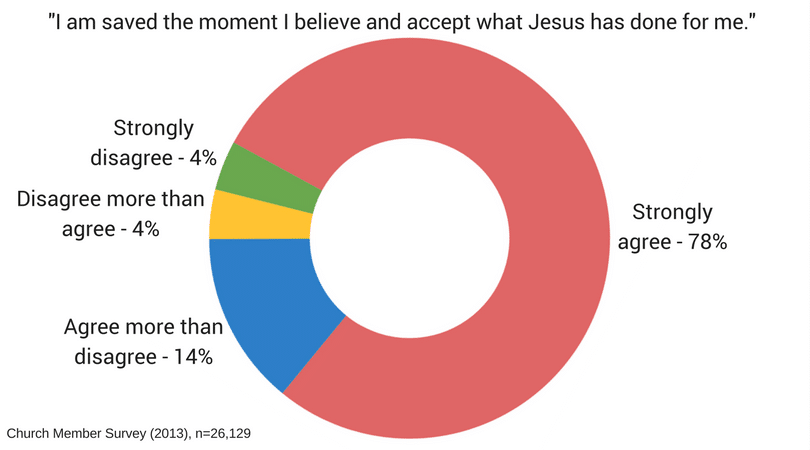Should one imagine he is able to do anything good of his own strength he does no less than make Christ the Lord a liar.
Martin Luther, On Faith and Coming to Christ
“BAM! BAM! BAM!” Can you imagine the sound of Martin Luther’s hammer ringing out as he nailed his Ninety-Five Theses to the door of the All Saint’s Church in Wittenberg? On October 31, 1517, this radical German friar did just that, setting in motion the events that would become known as the Protestant Reformation.
While Luther had many points of concerns against the Roman Catholic Church’s teachings of the day, one of the main points of contention was the issue of justification by faith alone. The Catholic church taught that while salvation was only through the grace of God, that grace can only be received through the mediation of the Church; and that it can, indeed must, involve human cooperation with divine action, so that it can partly be be earned with sins forgiven partly through one’s own actions. In contrast, Luther’s radical argument, which he reached after intensive study of Romans, Galatians, and Hebrews, was that salvation only requires faith in Jesus.
This idea is one that has caused controversy, misconceptions, and questions, ever since the days of Martin Luther. In 2013, a survey of church members around the world was conducted under the direction of the General Conference Office of Archives, Statistics, and Research. The study was designed to assess the experiences and attitudes of church members regarding different aspects of their personal spiritual lives and their participation in the Seventh-day Adventist Church. Members around the world were asked several questions about their personal understanding of salvation; one asked them to respond to the statement, “I am saved the moment I believe and accept what Jesus has done for me.”
More than three quarters (78%) of members worldwide strongly agreed with this statement. Additionally, fourteen percent of respondents indicated that they agreed more than they disagreed with this statement. Very small percentages expressed disagreement, with (4%) responding that they disagreed more than they agreed, and another 4% strongly disagreeing.

Seventh-day Adventist Church members were also asked about their belief in the statement: “Christianity is about Jesus giving me power to conquer sin in my life.” Globally, nearly three in four members (74%) responded that they “strongly agree” with that statement, with an additional 18% indicating that they “agree more than they disagree.” A small percentage (9%) shared that they either disagreed more than they agreed or strongly disagreed.

Another question posed to church members was their belief in this statement: “A relationship with Jesus is important, but I will not get to heaven unless I obey God’s law.” Two out of three respondents (66%) indicated that they strongly agree with this statement – a number that is concerning as it goes directly against the teachings that Luther rejected. An additional 16% of members said that they agreed more than they disagreed with the statement. Only about one in ten (11%) disagreed with the statement. This suggests that a degree of confusion exists among Adventists regarding the exact and ultimate role of faith in salvation and the role of the law in Christian life.

It is so easy to slip into the belief that our actions can earn us salvation, or that we can do something more to “deserve” God’s favor. For some, they even find comfort in the thought that they can do something more to gain favor with God – clearly forgetting the condition in which sin has left us! It is vital that we remember – and teach others – that in the end, it is only through the gift of salvation and by the death of Jesus on the cross that we are saved.
Creado en colaboración con el Instituto del Ministerio de la Iglesia (Institute of Church Ministry).
Published by ASTR

